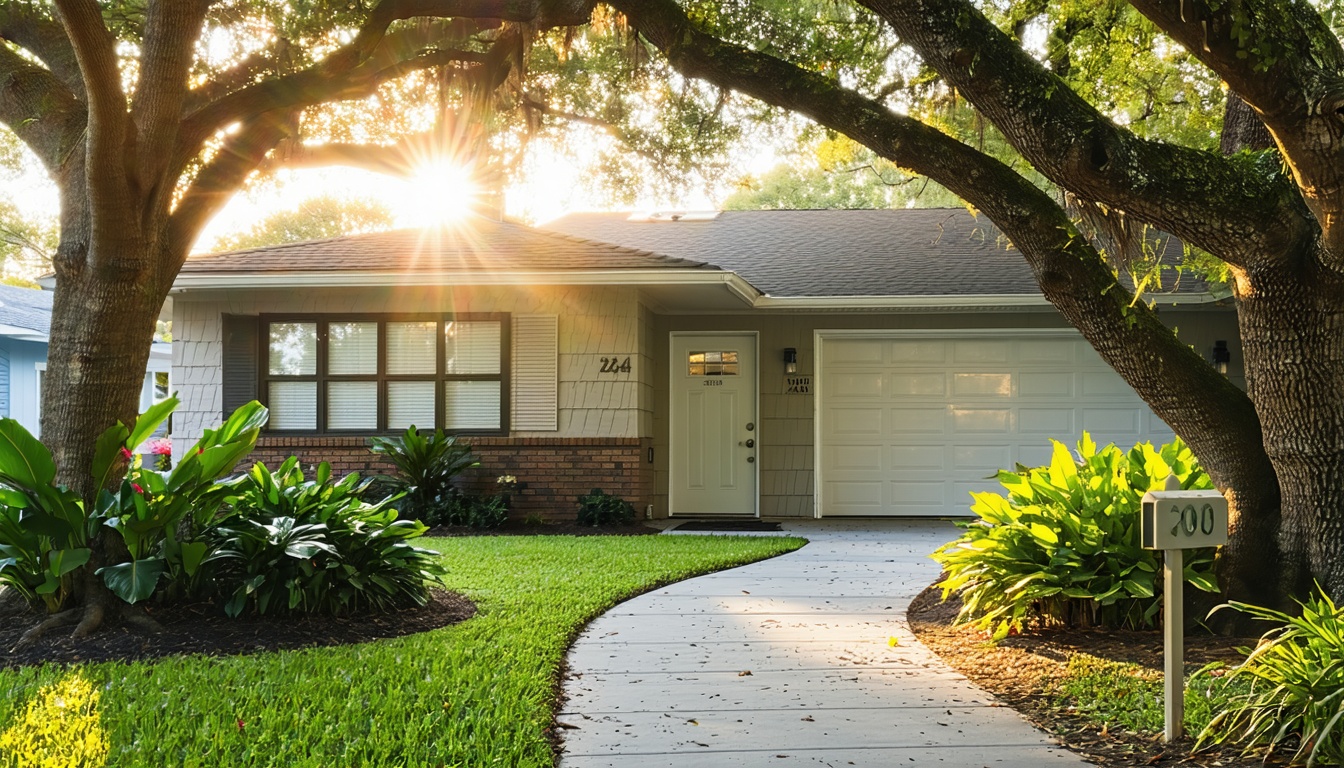Transitional housing referral explained
If you have recently completed drug or alcohol addiction treatment, or if you are nearing the end of your residential program, you might be wondering how to maintain your momentum in a stable, supportive environment. One promising option is a transitional housing referral, which means connecting with resources that offer short-term, structured living arrangements to help you bridge the gap between intensive rehab and independent life. In the context of addiction recovery, these transitional settings provide you with a much-needed blend of security, accountability, and community support.
In the United States, homelessness is a pervasive issue that intersects strongly with addiction and mental health challenges. According to the Department of Housing and Urban Development, over half a million individuals experience homelessness on a single night. While not all of these cases involve substance use disorders, many people in recovery encounter obstacles to secure housing when leaving treatment. By seeking a transitional housing referral, you can lessen the risk of relapse by staying in a stable, recovery-focused environment while you plan your next steps. This safety net is particularly important if you feel uncertain about returning to an unsupportive home environment or facing societal pressures immediately after rehab.
Transitional housing, sometimes called short-term supportive housing, typically spans a few months to a couple of years and combines safe accommodations with structured support services, such as case management, employment assistance, and continuing therapy. The better you understand how transitional housing works and the unique benefits it provides, the more prepared you will be to continue your recovery journey successfully. This article explores how transitional housing complements drug and alcohol rehab, how it enhances your prospects for long-term sobriety, and why Kemah Palms aligns so well with this crucial component of aftercare.
Connect addiction recovery with housing
Securing stable housing after treatment can have a profound impact on your sobriety. Addiction treatment is often intensive, focusing on detoxification, therapy, support groups, and medical care. Once you exit this structured environment, you may suddenly find yourself dealing with daily stressors, triggers, or social influences that can undermine your progress. Transitional housing, in this sense, acts like a buffer: it smooths out the shift from a highly monitored rehab setting back into broader society.
Why stable housing matters
Whether you are dealing with alcohol dependency or recovering from opioid addiction, a stable place to live means you have better odds of adhering to your aftercare plan. You can remain focused on therapy, group sessions, and skill-building activities. When you have security and a degree of accountability, you are more likely to maintain a sober lifestyle. On the other hand, returning to an environment where substance use is still present, or where stressors are overwhelming, can increase the chance of relapse.
Transitional housing programs often collaborate with local organizations or social services to ensure you have access to resources like job training or mental health counseling. Some of these initiatives are also guided by Homeless Management Information Systems (HMIS) recommended by government and private grants. According to Bonterra Technologies, HUD-compliant HMIS helps providers gather the data necessary to demonstrate their program’s effectiveness. This not only helps secure future funding but also ensures that each housing program can adapt its services to support residents’ evolving needs.
Comprehensive continuum of care
In many ways, transitional housing is a natural extension of aftercare, harmonizing with outpatient programs, group therapy, and ongoing counseling. Any strong rehab plan acknowledges that your commitment to recovery does not end with the completion of detox or an inpatient stay. Instead, the process of re-integrating into your daily life often poses unique challenges. A transitional housing referral can help you sidestep potential hurdles, especially during those first vulnerable months or years post-rehab.
Identify key benefits of transitional housing
Transitional housing offers an array of advantages that can significantly boost your chances of achieving long-term sobriety. These benefits go beyond simply having a roof over your head. Instead, they cultivate a structured, supportive, and inspiring environment aimed at keeping you on track with your recovery goals.
Safe environment to rebuild
Throughout the initial stages of recovery, you will likely need time to regain your footing. If you are worried about pressure to relapse, transitional housing provides a substance-free environment that promotes healthy coping mechanisms. By surrounding yourself with peers who share similar goals, you are more inclined to stay committed and take part in activities that reduce stress, such as support groups or physical fitness programs.
In some cases, transitional housing facilities incorporate life skills training to help you rebuild personal independence. This training might involve cooking classes, budgeting workshops, or basic home maintenance tutorials. Each skill offers a sense of motivation and progress, making the overall transition to eventual independence feel less daunting.
Accountability and structure
Accountability is often a cornerstone of recovery. Many transitional housing programs enforce rules that discourage negative behaviors, such as drug or alcohol use, curfew violations, or disruptive conduct. While it might initially sound restrictive, these guidelines offer you a clear framework within which to cultivate healthy habits. There is also usually a level of shared responsibility, from attending house meetings to monitoring chores or community tasks.
Alongside accountability, structured days can curb boredom and reduce idle time that could lead to cravings. A consistent routine might involve group therapy sessions, classes, or community service. According to Exponent Case Management, transitional housing often integrates case management and housing search assistance that can streamline your move into permanent living as you demonstrate readiness.
Emphasis on peer support
Developing meaningful connections with others chasing the same goals can be extremely empowering. Transitional homes typically house individuals in recovery who share experiences, challenges, and successes. By talking openly about your struggles, and hearing others share theirs, you can build stronger coping mechanisms and find encouragement in times of discouragement. Peer support thus becomes a form of collective strength.
In addition, forging close bonds with people who genuinely understand the difficulties of addiction can reduce feelings of isolation or shame. Peer groups can also hold each other accountable for goals, celebrate milestones, and offer practical advice for handling triggers when they arise. As an added layer of care, some transitional housing programs will pair new residents with “buddies” who help them adapt to the housing environment and routines.
Lifeline to additional services
Many transitional housing programs collaborate with social workers, local businesses, or community outreach initiatives to deliver a range of services. You might take part in workshops on workplace readiness, parenting classes, or mental health counseling. These can be especially valuable if you are dealing with co-occurring conditions like depression, anxiety, or PTSD. Getting direct referrals to local mental health clinics and employment agencies can considerably accelerate your path toward a stable, productive life.
The benefit of transitional housing is that it gathers many supportive elements under one roof, so you are not left juggling multiple appointments in scattered locations. This convenience also helps if you do not have a reliable vehicle or are short on resources for private transportation.
Evaluate crucial factors when seeking a referral
As you start exploring a transitional housing referral, it is helpful to know what elements make these programs effective. Every person’s situation is different, and you should choose a program that suits your unique needs, whether that means specialized medical care or close proximity to your existing support network.
Location and community ties
Many transitional housing programs emphasize proximity to essential resources. According to Bonterra Technologies, location matters. Having nearby access to mental health clinics, job centers, or educational facilities can streamline your quest for self-sufficiency. Additionally, local zoning regulations might impose limits on the number or types of supportive services that a program can provide. Make sure you investigate any legal considerations while you plan your next steps.
Building community ties can also prove vital. Engaging with neighbors, businesses, or local officials can foster positive relationships instead of resentment or suspicion about your recovery program. By reframing the role of transitional housing in your community—focusing on the positive outcomes and success stories—you can help dispel fear and demonstrate how these programs create healthier neighborhoods for everyone.
Integration with case management
According to sources like CaseWorthy, transitional housing differs from other forms of support, such as emergency shelters, in its degree of structure and length of stay. Unlike a short-term shelter, transitional programs often include case management that helps you find employment, navigate insurance, and manage your physical or mental health appointments. When researching a potential transitional housing referral, look for evidence of strong case management, as it can make a significant difference in how fast you are able to transition to permanent, independent housing.
Data-driven accountability
Another hallmark of a reputable transitional housing program is its commitment to data-driven approaches. Providers often track intake data, success rates, average length of stay, and whether residents secure permanent housing by the end. Having a robust system in place, like a HUD-compliant Homeless Management Information System, means the staff can continue refining the program model while maintaining accountability to funders and to the community. Some states and private organizations require these measurements to issue grants, so your housing provider’s record-keeping could affect service quality.
Plan your next steps toward stable recovery
If you think transitional housing might be the right fit, start by talking with a trusted counselor, social worker, or rehab center. They can initiate a transitional housing referral on your behalf, direct you to local resources, and help you compile the necessary documentation.
- Gather documents: Many programs need proof of recent discharge from an addiction treatment center, plus identification and any financial details to ensure they can tailor their services.
- Determine insurance coverage: Check whether your insurance plan can help cover related costs or if you need additional resources. You can use resources like private insurance rehab coverage to learn more about your plan’s benefits. If you have a specific provider, you might also want to verify bcbs rehab coverage, verify aetna insurance rehab, or explore our magellan accepted rehab services.
- Visit the facility: Whenever possible, tour the transitional housing site or speak with current residents. As you walk around, pay attention to the environment, talk to staff members, and gauge communal areas. This step can help you decide if it suits your unique situation.
- Build a support network: Beyond the transitional housing referral itself, consider connecting with local support groups, mental health professionals, or continuing care services. Combining transitional housing with other aftercare measures often amplifies your likelihood of success.
Consider insurance coverage for continued care
Depending on the specifics of your situation, you might be concerned about expenses. The good news is that many reliable recovery facilities and transitional housing programs collaborate with insurance carriers to offset a percentage of costs. If you are uncertain about your coverage, you may want to look into verifying your benefits, especially if you rely on certain providers. For instance:
- verify magellan insurance rehab if you have Magellan as a provider
- verify bcbs rehab coverage if you are under Blue Cross Blue Shield
- verify tri west rehab coverage if you have TriWest insurance
- verify humana rehab coverage if your carrier is Humana
Additionally, if you or a loved one has served in the military, transitional housing could be part of a broader care plan. Sometimes, you need a va refer veteran rehab arrangement to facilitate your stay, especially if you have unique service-related mental health challenges.
When it comes to transitional housing, it is essential to keep lines of communication open with your insurance representatives. Ask about potential coverage for short-term supportive housing, counseling, case management, or other key services. Even if a program is not fully covered, partial financial assistance may significantly reduce your personal costs.
Why choose Kemah Palms for addiction treatment
Selecting the right rehab center is the first piece of the puzzle. If you are committed to achieving sobriety, you deserve a program that empowers you with high-quality care from detox through aftercare. Kemah Palms is dedicated to delivering industry-leading drug and alcohol addiction treatment that helps you navigate every stage of your recovery, from initial assessment to the day you are ready to transition to independent living. Here are a few reasons why Kemah Palms has come to be recognized for outstanding treatment:
Evidence-based therapies and personal attention
Kemah Palms adopts an integrated approach that blends evidence-based interventions—such as Cognitive Behavioral Therapy, Dialectical Behavioral Therapy, and trauma-focused treatments—with holistic methods. You might experience therapies that focus on mindfulness, stress management, and physical well-being, all under the guidance of experienced clinicians. Each program is personalized to address your unique challenges, making sure you receive the support necessary for lasting recovery.
Continuity of care and transitional support
One of the most challenging phases of rehab is life after discharge. That is why we emphasize preparing you for the road ahead. Kemah Palms can help you find a transitional housing referral that aligns with your needs and insurance coverage. Our staff works with you to plan your next steps for post-detox continuing care. This means you will not face the uncertainty of re-entry alone. You will have a pathway to stable, sober living in a supportive community.
We also provide an aftercare support program designed to keep you engaged in recovery. From relapse prevention planning to coordination with a sober living referral, our comprehensive framework ensures you have an entire network of professional and peer support.
In-network insurance partnerships
We strive to make addiction treatment as accessible as possible. Whether you are interested in bcbs accepted addiction treatment or exploring tri west accepted rehab provider options, we assemble the right combination of care and coverage. If you are unsure how your insurance plan applies to transitional housing referrals, our team can answer your questions and help you verify specifics.
Empowering environment
Kemah Palms prioritizes a setting that combines relaxation with a well-defined recovery structure. We know each individual’s journey is personal, and we ensure our environment fosters belonging, empathy, and a sense of purpose. By emphasizing group therapy, experiential activities, and skill-building sessions, we create a foundation where you can safely explore the roots of your addiction and strengthen the coping techniques you have developed.
Additional supportive services
To optimize your physical and mental health, Kemah Palms also offers you opportunities like boxing fitness recovery program and nutrition education in rehab. These programs reinforce the link between an active, health-oriented lifestyle and a long-lasting recovery. We further cultivate a sense of connection and responsibility by encouraging you to attend weekly recovery support meetings and take part in community outreach recovery efforts. If you ever run into challenges that require specialized attention, we can also provide integrated solutions such as virtual family therapy rehab sessions, ensuring that loved ones remain part of your support network.
Five frequently asked questions
Below, you will find answers to common questions about transitional housing referrals, continuing care, and the path forward after rehab.
-
What is the main difference between a transitional housing program and sober living?
Transitional housing usually includes structured support services like case management and has a specific time limit, typically ranging from a few months to a year or more. Sober living homes also engage in substance-free living, but they may offer a bit less formal structure. Transitional housing programs often benefit those needing more robust guidance, including long-term stability planning and job assistance. -
How long should I plan to stay in transitional housing?
This can vary based on your goals and the requirements of the program. Some individuals stay as few as three months, while others may require up to a year or more. Data from Exponent Case Management suggests the average stay ranges from around 175 days for single men to 223 days for families. The key is ensuring that you have ample opportunity to build stability before moving on. -
Will my insurance pay for transitional housing?
It depends on your insurance plan and the specific coverage details. Some plans may offer partial coverage for housing if it is linked to ongoing treatment or case management. You can connect with admissions team at Kemah Palms or contact your insurer directly to see if transitional housing costs qualify under mental health or substance use disorder benefits. -
What if I need extra support after leaving transitional housing?
Many rehab centers, including Kemah Palms, provide recovery coaching services, case management addiction, and post detox continuing care. Even after you leave a transitional program, it is wise to maintain contact with your treatment providers and peer groups for relapse prevention. Check whether your transitional housing partner offers alumni networks or referrals to other forms of ongoing care as well. -
How do I know if transitional housing is right for me?
Generally, if you do not feel fully prepared to handle daily stressors or triggers after completing treatment, transitional housing can be a great fit. It offers a safe, supportive stepping stone while you strengthen your newly acquired coping skills. Discuss your concerns with your therapist or counselor to determine if you will benefit from a transitional housing referral.
Continue your journey with confidence
Every stage of recovery presents its own unique challenges. By pursuing a transitional housing referral, you can bridge that often-difficult gap between intensive rehab and independent living. With structured accountability, peer support, and numerous services designed to help you thrive, transitional housing can be the key piece in your aftercare plan.
At Kemah Palms, we are committed to guiding you from detox through the final phases of rehabilitation and beyond. Our knowledgeable team works diligently to align each returning individual with the best possible living arrangement, whether your goal is short-term transitional support or more specialized care. We invite you to explore our continuum of programs—from immediate access rehab no waitlist to telehealth rehab consultation—so you can receive help quickly and conveniently. You can also reach out for a free recovery consultation to discuss your specific needs.
Recovery extends far beyond that final day of inpatient treatment. By connecting the dots between professional care and a stable living situation, you give yourself the support, hope, and practical resources necessary for lasting change. If you are considering this valuable stepping stone, talk to our admissions specialists about how you can secure a transitional housing referral and ultimately build the solid foundation you need for a healthier, sober future. You have come this far—let us help you move forward with confidence.







